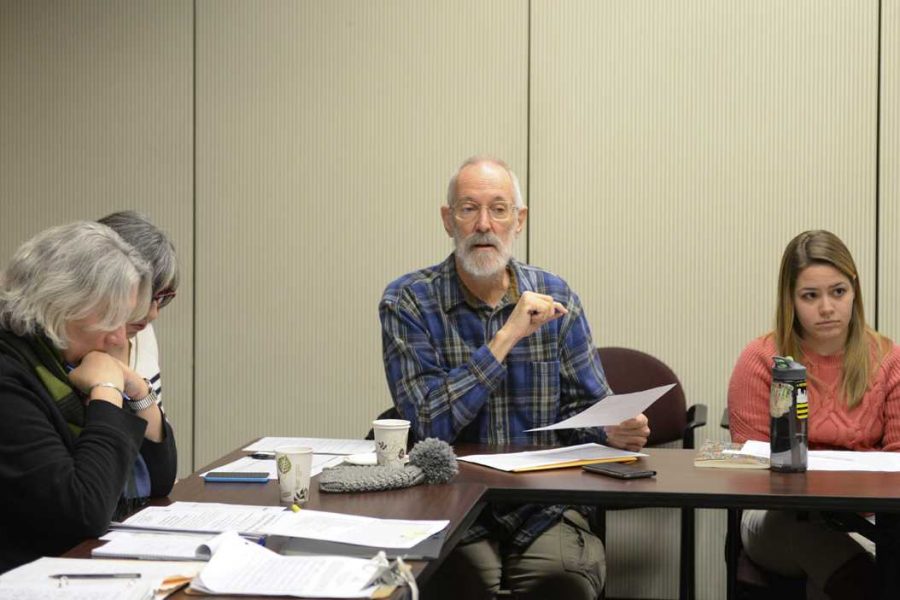Editor’s note: In a previous version of this story, Officer Sharon Leshen’s name was spelled incorrectly. We have updated the story and regret this error.
The way it used to be, Oakland was a loud, raucous neighborhood teeming with students who seemed to do nothing but party.
But now, its permanent residents say, that’s changed.
Both city and Pitt police –– as well as Oakland’s residents –– say they have noticed college students living in the neighborhood this year are keeping the noise down compared to past classes.
On Wednesday, members of Oakwatch, a coalition of Oakland residents, Pitt and Pittsburgh police, Pitt Student Government Board members and city officials, said there has been a general decrease in partying over the past few years and related citations because of increased patrolling and community cooperation.
Inside the Jewish Federation of Greater Pittsburgh, community members met at noon and discussed how to continue the trend.
“We’ve got the lid back on, I think, outside of the occasional boil overs,” Mark Oleniacz, the co-chair of the South Oakland Neighborhood Group, a community organization primarily focused on the South Oakland neighborhood, said. “We’re making a difference.”
Although Oakwatch has noticed a quieter neighborhood in the past five to 10 years, those observations may not have the numbers to back them up. According to Pitt police logs there were more than 90 incidents this August compared to about 63 incidents in August 2015.
And so far this September, Pitt police have responded to 103 incidents. This time last September, there were about 69 incidents.
Yet while police have recorded more incidents than last year, they have not generated as many complaints from residents, according to Guy Johnson, Pitt police community relations officer, who said the number of complaints has generally decreased over the past few years.
The decrease, Johnson said, is due to a more proactive impact detail, which increases patrolling by four more officers during noted times of high conflict. The detail increases patrol by four more officers from 11 p.m. to 3 a.m. during weekend nights.
“The force is being more proactive in how to deal with [parties],” Johnson said. “[The officers] were aggressively patrolling anything that brings attention [to an area].”
The impact detail, created in 2008, increased the number of officers patrolling Oakland Thursday, Friday and Saturday nights, working in conjunction with city police. In 2008, The Pitt News reported city and Pitt police created the detail to crack down on minor incidents in the hopes of reducing more serious crimes.
City police officer Shannon Leshen added that in addition to the detail’s proactivism, police have been calling property owners when a warning or citation is delivered to leaseholders so that ordinances can be addressed as soon as possible to avoid any future problems.
She said public awareness from the residents of the area and their self-reporting have also aided the police in responding quicker to situations before they get out of hand, which has helped contribute to the decrease in citations.
“With any college [they will] have that lifestyle, but yes, the number of complaints has gone down,” Leshen said.
Hanson Kappelman, one of the chairs of Oakwatch, said it has been “a slow process” to decrease the number of parties and citations, but he has noticed changes since Oakwatch began in 2011.
“I think –– as we heard today –– there is an awful lot that has changed since [Oakwatch began],” Kappelman said. “There just seems to be a lot more awareness … in the academic community.”
Also at the meeting Wednesday, Kappelman announced Oakwatch will start searching for a new co-chair, as he is leaving by the end of the year to travel with his wife. Kappelman said people interested in becoming co-chair should let Oakwatch know, and then they will be interviewed by Oakwatch members.
Members at the meeting also briefly discussed the body recently found at a South Oakland home on Frazier Street, how the closure of the Liberty Bridge could impact Oakland’s traffic and what qualifies a building to be named a disruptive property, among other topics.
The next meeting will be Oct. 19 at the Career Center on the corner of Semple and Louisa streets.


